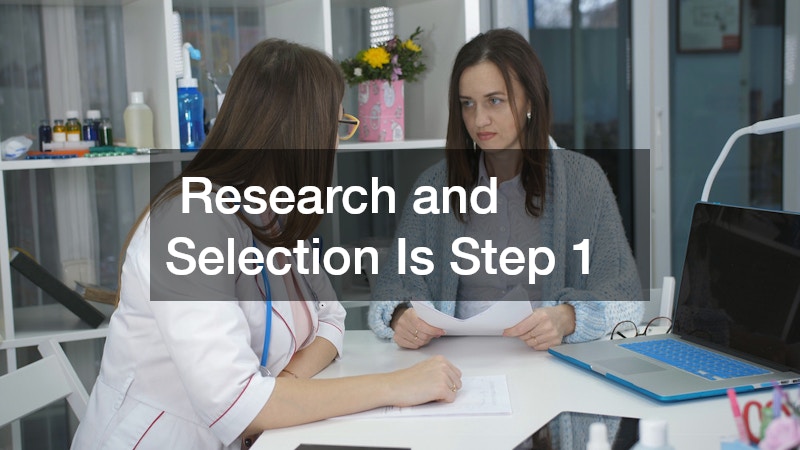Egg donation is a life-changing act that enables women or couples who are struggling with infertility to realize their dream of parenthood. If you are considering selling your eggs, it’s important to understand the process, what’s involved, and the requirements before making the decision. Egg donation involves both a physical and emotional commitment, and understanding the steps involved will help you make an informed choice. Have you been thinking, “I should learn the process for how to sell my eggs?” In this article, we will walk you through the egg donation process, what to expect, and what you need to know to become an egg donor.
What Is Egg Donation?
Egg donation is the process by which a woman donates her eggs to help another person or couple conceive a child. The eggs are typically fertilized in a laboratory through in vitro fertilization (IVF), and the resulting embryos are implanted into the intended mother’s uterus or a surrogate’s womb.
In egg donation, the donor is not biologically related to the child born from the donation. There are two types of egg donation: anonymous donation and known donation. In anonymous donation, the donor’s identity is kept confidential, while in known donation, the donor and the intended parents know each other’s identities.
Egg donation can be an incredibly fulfilling experience, as it provides an opportunity to help someone who is struggling with infertility. The process, however, requires careful consideration and planning, as it involves medical, legal, and emotional aspects.
The Egg Donation Process
While every egg donation program may differ slightly, the process generally follows several key steps. Below is an overview of what you can expect:
Step 1: Research and Selection
The first step in donating your eggs is to conduct research and find a reputable fertility clinic or egg donation agency. Many clinics specialize in egg donation and have clear guidelines and requirements for potential donors. You should inquire about their screening process, compensation, and any other pertinent details.
To be eligible for egg donation, you must meet specific criteria. Most fertility clinics or agencies have age restrictions, typically requiring egg donors to be between 21 and 30 years old. This is because women in this age range tend to produce higher-quality eggs, and the risk of complications is lower.
Additionally, you should be in good physical and mental health, with no history of chronic illnesses, genetic disorders, or reproductive issues. You will need to undergo medical tests and psychological evaluations to determine if you are a good fit for the process.
Step 2: Medical Screening and Evaluation
Once you’ve been selected as a potential donor, you will undergo thorough medical and psychological screenings. The medical evaluation will likely include a review of your medical history, blood tests, ultrasound exams to assess your ovarian health, and genetic testing to ensure there are no hereditary diseases that could be passed on to any potential offspring. These tests are essential to confirm that your eggs are healthy and suitable for fertilization.
Psychological screening is also an important part of the process. Surrogacy and egg donation can be emotionally complex, and agencies want to ensure that you are mentally prepared for the donation process. During this evaluation, the counselor may discuss your motivations for donating, the emotional aspects of giving up a child that is biologically yours, and any long-term effects of the donation process.
Step 3: Ovarian Stimulation
Once you’ve passed the screening process, you will begin ovarian stimulation. This process involves taking hormone injections to stimulate your ovaries to produce multiple eggs instead of just one. The goal is to collect several mature eggs in one cycle, which increases the chances of successful fertilization.
The hormone treatment usually lasts 10 to 14 days, during which you will visit the clinic several times for ultrasounds and blood tests to monitor how your body is responding to the medication. During this time, you may experience side effects such as bloating, mood swings, or fatigue, which are common during the stimulation process.
Step 4: Egg Retrieval
Once your eggs are fully matured, you will undergo an egg retrieval procedure. This is a minor surgical procedure that takes place in a clinic or hospital under sedation or light anesthesia. The doctor will use a thin needle, guided by ultrasound, to collect the eggs from your ovaries. The procedure typically lasts about 20 to 30 minutes, and most women are able to go home the same day.
After the procedure, you may experience some discomfort, cramping, or spotting, but these symptoms should subside within a few days. You will be given aftercare instructions to ensure proper recovery.
Step 5: Post-Donation Care and Recovery
After the egg retrieval, you will need to take some time to rest and recover. Most women return to their regular activities after a few days of rest. It’s important to avoid strenuous physical activities, such as heavy lifting or intense exercise, for a short period following the procedure. Your fertility clinic will provide you with specific aftercare instructions and schedule follow-up visits to ensure that your body is recovering properly.
Some women experience emotional effects after the donation, and it’s normal to feel a mix of emotions. If you have any concerns, it’s a good idea to seek support from a counselor or the agency facilitating your donation.
Compensation for Egg Donation
In most cases, egg donors are compensated for their time, effort, and the physical process involved. The compensation for egg donation varies, but typically ranges between $5,000 to $10,000 per donation cycle. The amount of compensation may depend on factors such as the donor’s experience, the clinic’s location, and the demand for donors in specific demographics.
It’s important to note that egg donation is not a way to “make money,” but rather a process where the donor is compensated for the time and effort involved. Donors should be aware of their rights and the financial details of the arrangement before committing.
Legal Considerations
Before beginning the egg donation process, it is important to have a legal agreement in place. The legal contract will outline the rights and responsibilities of both the donor and the intended parents, including compensation, confidentiality, parental rights, and the use of the donated eggs.
Legal agreements ensure that the donor understands that she will not have parental rights or obligations to any child born from the donation. Donors may also have legal protections in place, such as being reimbursed for medical expenses or legal fees, and ensuring that the intended parents have full parental rights over the child.
Donating your eggs is a generous act that can change someone’s life by helping them create the family they have always dreamed of. The process of egg donation involves medical screening, hormonal treatment, and emotional preparation, but it is a highly regulated process to ensure that everyone involved is treated fairly and safely. It is important for anyone considering egg donation to fully understand the steps involved, the legal and medical responsibilities, and the compensation arrangements. Working with a reputable fertility clinic or egg donation agency will help ensure that the process goes smoothly and that both the donor and the intended parents have a positive experience. If you are considering donating your eggs, take the time to carefully research the process, consult with experts, and make the decision that feels right for you.







